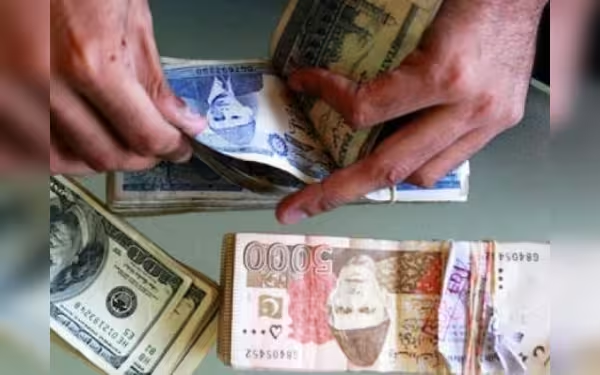Thursday, July 4, 2024 06:57 PM
IMF Criticizes Pakistan's Power Tariff Reduction and Wealth Tax Plans
- IMF concerned about Pakistan's power tariff reduction and wealth tax initiatives
- Government reconsidering wealth tax proposal due to IMF objections
- Industrialists worried about financial strains from proposed fixed electricity surcharges
 Image Credits: tribune_pk
Image Credits: tribune_pkThe IMF expresses concerns over Pakistan's government's plans to reduce power tariffs and impose a wealth tax, leading to a reconsideration of taxation options. Industrialists fear financial strains from proposed fixed electricity surcharges, while the government faces resistance in balancing economic interests and financial sustainability.
The International Monetary Fund (IMF) has expressed concerns over Pakistan's government's recent initiatives to reduce power tariffs for industrial consumers and impose a wealth tax on assets. Prime Minister Shehbaz Sharif's Rs200 billion package aimed at lowering electricity rates has drawn criticism from the IMF, particularly regarding the proposal to tax cash in bank accounts.
In response to the IMF's objections, the government is reconsidering the wealth tax and exploring alternative taxation options. The IMF has also raised questions about the potential bias in favor of industries over residential consumers in the tariff reduction plan.
To fund the relief package, the government plans to allocate budget resources and impose fixed electricity charges on all consumer categories. However, the IMF remains cautious about the impact of reducing industrial tariffs on circular debt neutrality and other underlying issues.
Industrialists have expressed concerns about the proposed fixed electricity surcharges, anticipating financial strains on large industries. The combination of increased fixed charges and reduced subsidies is expected to have adverse effects on industrial operations.
Moreover, the government's decision to raise fixed charges for all consumer types has faced backlash. The IMF's recommendation to increase gas prices for full cost recovery of imported LNG poses challenges for industries with in-house power plants.
The government is encountering resistance from both the IMF and industrial stakeholders in its efforts to address power tariffs and taxation. Balancing economic interests and financial sustainability remains a complex task for policymakers.













